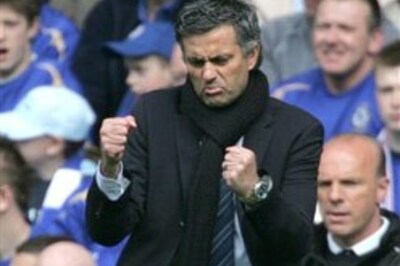
views
This story was posted on the parent Website on December 23 at 3:47 pm
By Christian Oliver and Kang Buseong in Seoul
When David Austin, North Korea programme director at Mercy Corps, a US aid agency, visited a hospital in North Pyongan in February to monitor newborn babies, it was so cold in the building that the ink froze in his pen. In one of the icy maternity wards, six new mothers were huddled together under blankets spread across four beds. Even though none of their babies was premature, each child weighed less than two kilos.
His visit to the hospital illustrates two of the most pressing concerns for the isolated country's economy: power supplies are moribund and malnutrition is rampant. With an annual cereal shortfall of about 1m tonnes, the UN estimates that about a quarter of the population is starving.
Observers are closely watching Kim Jong-eun, North Korea's new leader, to determine how he will confront these problems.
"Economic reform is difficult as it endangers the stability of the regime," says Jo Dong-ho, a North Korea expert at Ewha Womans University in Seoul. Kim Jong-eun will be keenly aware that a landmark currency revaluation in 2009 by his father, Kim Jong-il, who died last Saturday, backfired dangerously, sparking market closures and unprecedented dissent.
While the Kim family has historically been able to crush any protest, hunger appears to be presenting the regime with increasing challenges. Clandestine footage from inside North Korea shows rising numbers of "drifting swallows" – emaciated children who beg at railway stations and scour fields for roots and berries.
Mr Austin said the food supply had deteriorated sharply between February and September this year. People reported the state distribution system gave them 150g of food a day – the equivalent of a potato – which was less than half of what they received in February. Spot inspections of maize fields showed much of the crop had failed.
"It was creepy the extent to which people were transfixed by the memory of when they last ate protein. They could remember to the day when they last had an egg or tofu," he said.
With meagre public supplies, people are becoming increasingly reliant on allotments, where they can grow their own food and raise small animals. North Korean defector groups say life has got harder since Kim Jong-il died because many markets have closed for official mourning. The price of rice has risen by about a third, they say.
Power is also reaching critical lows. Electricity consumption is just over a third of the levels seen two decades ago. Forests have been hacked down for fuel, triggering frequent landslides and flooding that in turn have helped disable many of the country's coal mines. North Korea lacks the pumping technology to empty many swamped pits.
One foreign witness said conditions at open cast mines were also grim, with antiquated excavators digging out "appallingly low-quality coals". "We came across several hundred women shovelling dirt around as part of a rebuilding project there – they were obviously cheaper than an excavator – but whether they were there voluntarily, as paid employees, or as part of a 'social duty', or even as punishment, I never could work out," he said.
Last month, Seoul's central bank estimated North Korea's gross national income was Won30tn ($22bn) in 2010, one-fortieth of South Korea's level. The lion's share of state spending goes into the North's 1m-man army, uranium enrichment and atomic missile programme.
North Korean state media reported last year that Kim Jong-il was trying to accelerate the production of vinylon, an indigenous synthetic fabric. Despite this effort to boost textiles, overall economic output slid 0.5 per cent during 2010, according to Seoul's central bank.
The economy is pinched by sanctions and international security forces have become more adept at seizing the country's illegal arms exports, which were a key source of dollars. Instead, Pyongyang has even turned to cybercrime scams to gain hard currency.
Facing such heavy economic pressures, many analysts think Kim Jong-eun, "the young general", has no choice but to open up his country further to China. Beijing acts as the country's lifeline, but it never successfully developed the major commercial concessions it wanted from Kim Jong-il.
Beijing wants to develop a port on the east of North Korea to give landlocked north-eastern China greater access to global trade. It also wants more concessions to North Korea's rich reserves of minerals – including magnesite and gold – that Seoul estimated two years ago were worth $6tn.
Beijing has tried to develop special investment enclaves in North Korea since the early 1990s, but there is little sign of major commercialisation. This year the two countries announced the start of work on new economic development zones in North Korea, but progress has faltered. Still, South Korea estimates Pyongyang's external trade, 80 per cent of which is with China, rose to $4.2bn in 2010 from $3.4bn a year earlier.
However, any increased dependence on China is also seen as risky in Pyongyang and change is unlikely to be sudden. North Korea is traditionally highly suspicious of any foreign investment that could promote social change and increase any popular questioning of the ruling family's legitimacy.
"Opening up is always limited to the extent that North Korean society has to be protected from foreign influence," says Yang Moo-jin, a professor at Seoul's University of North Korean Studies.
© The Financial Times Limited [2011]


















Comments
0 comment